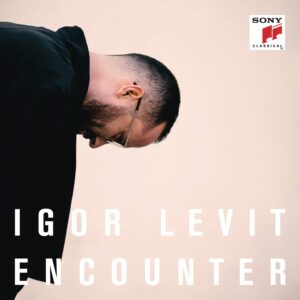Ferruccio Busoni’s transcriptions of Bach and Brahms Chorale Preludes aspire to recreate the original organ textures in thoroughly pianistic terms, requiring the performer to render smooth sleight-of-hand shifts between registers, and the already well-occupied left hand to cover pedal passages that organists play with their feet. Igor Levit’s recordings of the complete Busoni Bach and Brahms Chorale Prelude transcriptions are by far the best we’ve had since the late Paul Jacobs’ 1980 Nonesuch release (reissued by Arbiter on CD).
Levit’s impeccable technique and burnished, well-defined sonority perfectly befit Busoni’s aesthetic. What is more, Levit never drags, and avoids the kind of ponderous, texturally heavy interpretations of these works that we often hear.
Timings can be deceptive, but not in Levit’s case. His shapely, fluent, and forward moving Nun komm, der Heiden Heiland is similar to Murray Perahia’s in that it shaves a minute or so from many less mobile renditions. The difficult-to-control chordal leaps and inner counterpoints throughout Komm, Gott, Schöpfer! pose no problems at all. Vilkingur Olafsson’s DG recording of Nun freut euch, lieben Christen is superficially exciting for its brisk tempo and playful voicings, yet it sounds mechanical and one-dimensional next to Levit’s insightful melodic sculpting of the scurrying 16th notes.
The thicker sequences and overloaded climaxes in Reger’s piano versions of Brahms’ Four Serious Songs border on bombast, yet not in Levit’s performances. By contrast, Markus Becker’s sensitive piano transformation of Reger’s Motet Nachtlied loses nothing in translation from the vocal original.
I detect either adjusted amplitude or closer microphone placement for Morton Feldman’s valedictory piano opus Palais de Mari. Levit takes great care to articulate the composer’s degrees of dynamic contrast, and he imbues the reiterated patterns with subtle changes in touch and nuance. I personally prefer the more intimate ambience and less emphatic pianism of Sabine Liebner’s recording, while Feldman mavens might also opt for faster yet less dramatic traversals from Alan Feinberg and Aleck Karis. However, as with all of his releases, Levit’s mindful and meaningful artistry prevails in every work, every measure, and every note that he plays.
































